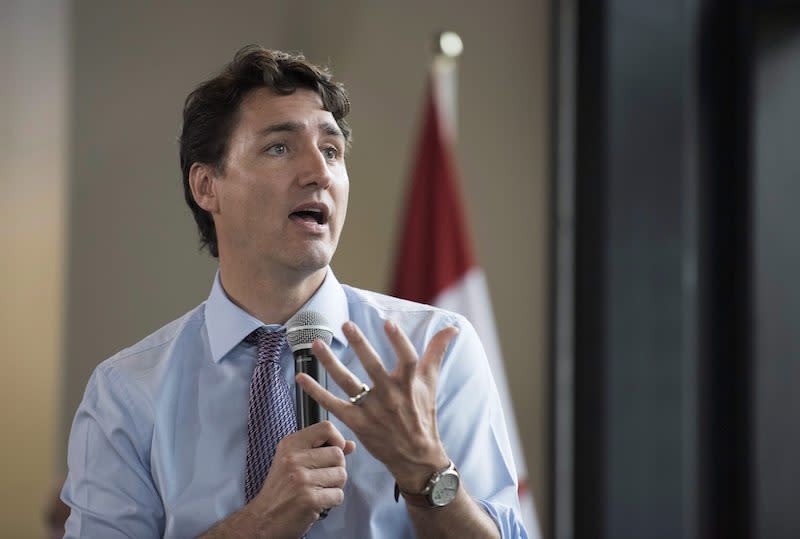Justin Trudeau's Liberals refuse to adopt marijuana decriminalization

Despite the federal government’s allowance for marijuana offences to be prosecuted ahead of pot legalization, some are calling for the decriminalization of cannabis in the interim period.
Prime Minister Justin Trudeau and MP Bill Blair participated in a Vice event at the news outlet’s Toronto office Monday. During the discussion, Trudeau recounted how his father helped his late brother avoid having a criminal record after a pot possession charge, pointing out the unfairness in the current system that doesn’t provide the same resources for all people facing charges.
“That’s one of the fundamental unfairnesses of this current system is that it affects different communities in a different way,” Trudeau said during the event.
But some argue the government’s insistence on continuing to prosecute marijuana-related offences with legalization potentially just months away continues that very practice unnecessarily.
Though she understands the government’s interest in reducing larger-scale criminal involvement in marijuana ahead of legalization, a lot of individuals and small businesses are being harmed by the continued prosecution of cannabis-related crimes, says Lisa Campbell, founder of the Toronto chapter of Women Grow, a group for women in the cannabis industry.
“It’s easy for the government, in the meantime, to have less harsh penalties for personal possession,” Campbell says. “Unfortunately, the government is so focused on eliminating organized crime that they’re not seeing that the impact of prohibition is more harmful than cannabis itself.”
Adopting decriminalization — where it would continue to be illegal to sell pot but people would not be charged, but potentially fined, for possessing small amounts of marijuana — would prevent users from obtaining a criminal record in the time before legalization is implemented. It’s an approach the the national chiefs of police organization has endorsed in the past, and one Canada considered implementing in 2003 under former prime minister Jean Chrétien.
The Liberals have themselves put forward unclear positions on the matter. On its website, the federal party promises to “legalize, regulate, and restrict access to marijuana,” adding, “Arresting and prosecuting these offences is expensive for our criminal justice system. It traps too many Canadians in the criminal justice system for minor, non-violent offences.”
The federal NDP supports the decriminalization of marijuana for personal use ahead of legalization. In June, the party put the issue to a vote, which did not pass.
At the time, the party said continuing to charge people for pot possession was a waste of government resources and burdened some Canadians with criminal records. But at that time last year, Justice Minister Jody Wilson-Raybould insisted decriminalization wasn’t on the table.
“The government has said clearly, with their words and their actions, that that’s something they’re not interested in,” Campbell says.
Even if the government did want to move on decriminalization, it might be too late at this point, says Ian Culbert, executive director of the Canadian Public Health Association. The time required to bring in decriminalization might be just a bit less than the timeline for legalization itself, he says.
Ultimately, a balance needs to be found between recognizing that marijuana was illegal for a long time, and avoiding excessive punishment for something that will soon be legal, Culbert says.
“Obviously, social mores change over time and it was illegal, and is still illegal, and at some point there has to be that switchover,” Culbert explains. “At the same point, we don’t want people to have their lives negatively impacted forever for a simple possession charge.”



